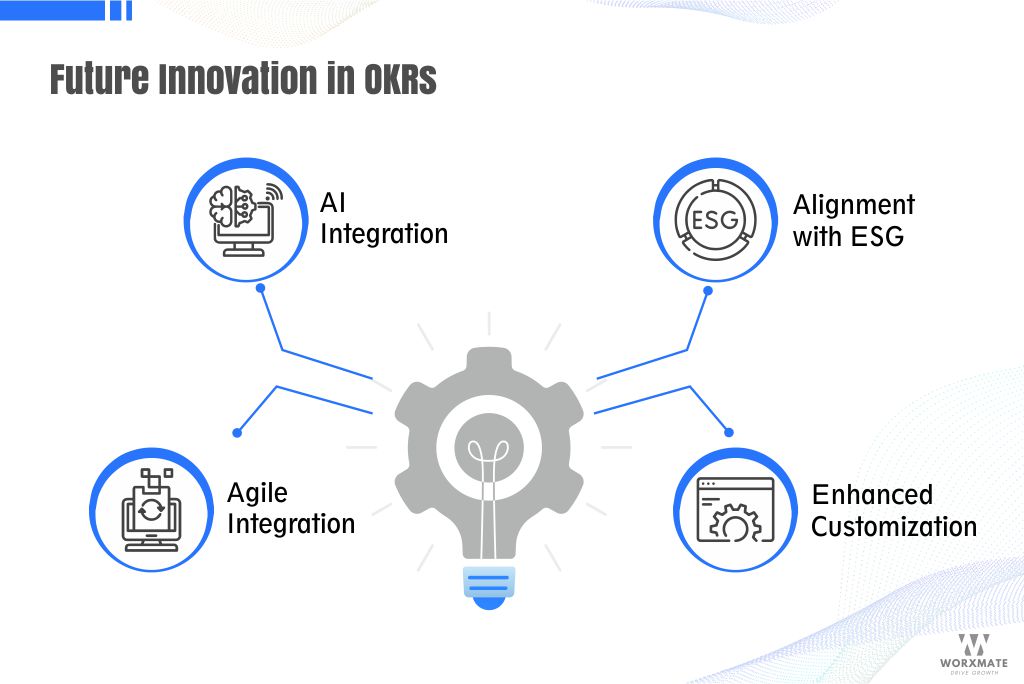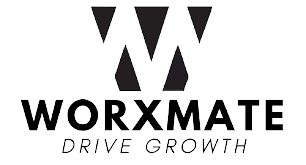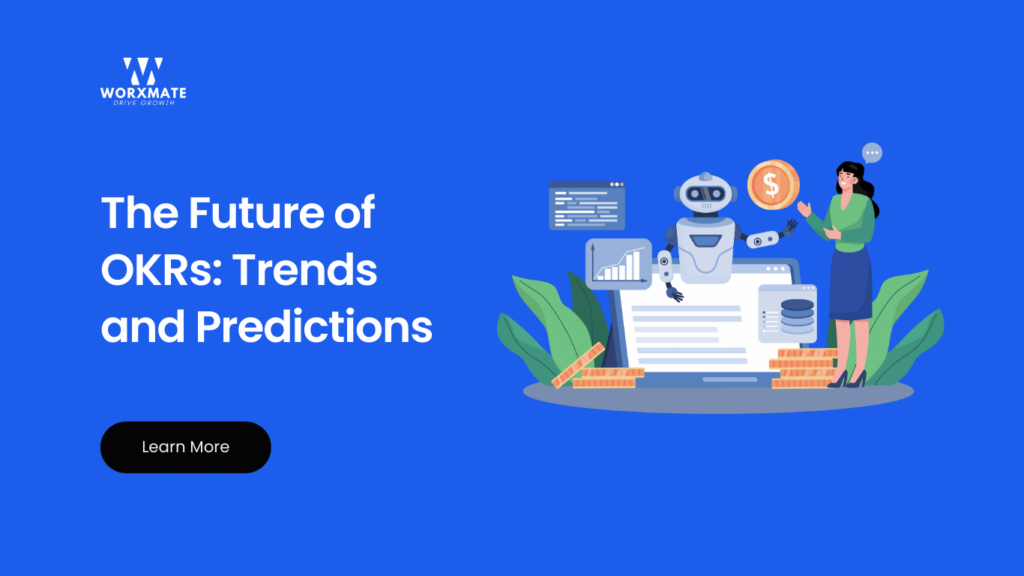Amidst the ever-changing business environment, organizations continually seek methodologies to enhance operations, foster innovation, and secure sustained progress.
Objectives and Key Results (OKRs) have surfaced as a favored framework for orchestrating and harmonizing goals across various teams.
As we venture into the future, the evolution of OKRs is primed to usher in notable transformations in business operations and strategic planning. Examining emerging trends and forecasts from industry experts is imperative to gain insights into the trajectory of OKRs.
The Future of OKRs: From Then to Now and Beyond
OKRs have come a long way since their inception, transitioning from a Silicon Valley secret weapon to a widely adopted framework across industries.
Traditionally associated with tech giants, OKRs are now embraced by startups, enterprises, and nonprofits alike. This democratization of OKRs reflects a broader recognition of their effectiveness in driving focus, alignment, and accountability within organizations.
Moreover, the rise of OKR software platforms has facilitated the adoption and scalability of OKRs within organizations. According to a Skyquest survey the Global OKR software market is projected to grow from USD 923.31 million in 2022 to USD 2588.9 million by 2030, growing at a CAGR of 13.68% in the forecast period (2023-2030).
This exponential growth underscores the increasing demand for tools that streamline OKR implementation, tracking, and management, further propelling the widespread adoption of OKRs across diverse sectors.
So, here are some of the top future trends and predictions of OKRs
 Increased Adoption Across Industries:
Increased Adoption Across Industries:
The widespread adoption of OKRs is poised to transcend its origins in the tech sector, expanding its influence across diverse industries, including healthcare, education, and manufacturing.
As organizations in these sectors grapple with the imperative to enhance performance and navigate complex challenges, they are increasingly recognizing the transformative potential of OKRs in fostering clarity, alignment, and accountability.
Technology Integration
One prominent trend shaping the future of OKRs is the integration of technology. As digital transformation continues to revolutionize workplaces, there’s a growing emphasis on leveraging technology to streamline OKR implementation and management.
From dedicated OKR software platforms to AI-powered analytics, technology is poised to enhance the entire OKR lifecycle, making goal-setting more efficient and data-driven.
Agile Adaptation
Another trend gaining momentum is the alignment of OKRs with agile methodologies. As organizations embrace agility to navigate rapid change and uncertainty, OKRs are being tailored to fit agile principles seamlessly.
This alignment enables teams to iterate on objectives more frequently, respond to market shifts in real time, and foster a culture of continuous improvement.
Emphasis on Employee Engagement and Well-being
In an era marked by remote work and distributed teams, prioritizing employee engagement and well-being is paramount. Experts predict that future iterations of OKRs will place a greater emphasis on employee satisfaction metrics and holistic performance evaluation.
By incorporating qualitative feedback alongside quantitative metrics, organizations can ensure that OKRs promote not just productivity but also employee fulfillment and work-life balance.
Alignment with Environmental, Social, and Governance (ESG) Goals
With growing societal concerns about sustainability and corporate responsibility, OKRs are expected to align more closely with Environmental, Social, and Governance (ESG) goals in the future.
Organizations will integrate ESG metrics into their OKR frameworks to drive progress in areas such as carbon footprint reduction, diversity and inclusion, and ethical governance practices. This alignment will not only contribute to societal impact but also enhance brand reputation and stakeholder trust.
Cross-functional Collaboration and Transparency
Collaboration across departments and teams is vital for achieving organizational objectives. Future trends suggest that OKRs will facilitate greater cross-functional collaboration by providing transparency and alignment at all levels of the organization.
Through shared OKRs and transparent progress tracking, teams will be empowered to collaborate more effectively, break down silos, and drive collective success.
Continuous Learning and Development
As the pace of innovation accelerates, continuous learning and development will be imperative for maintaining a competitive edge. OKRs of the future will focus not only on achieving specific outcomes but also on fostering a culture of learning and skill development.
Organizations will invest in resources and initiatives aimed at upskilling employees, nurturing creativity, and fostering a growth mindset to drive long-term success.
Personalization and Customization
Recognizing that one size does not fit all, future OKR frameworks will offer greater flexibility for personalization and customization. Organizations will tailor OKRs to align with diverse business objectives, team dynamics, and individual preferences.
This customization will enable a more nuanced approach to goal-setting, ensuring that OKRs remain relevant and motivating for all stakeholders.
Expertise in Change Management
Success in the field of OKRs will depend not only on technical proficiency but also on expertise in change management, culture transformation, and agile leadership development, as organizations seek holistic approaches to driving performance and growth.
Predictions from Industry Experts
- As OKR practices continue to evolve, there will be a growing challenge to consolidate a comprehensive body of knowledge that encompasses the diverse applications and best practices of OKRs.
- Leadership will recognize the importance of crafting inspiring objectives that resonate with a highly educated workforce. Merely setting numerical targets will no longer suffice to engage employees effectively; instead, leaders will focus on creating meaningful goals that inspire and motivate their teams.
- The proliferation of OKR software platforms is expected to accelerate, with a notable increase in the number of companies offering such solutions compared to just a few years ago.
- A majority of companies will adopt a hybrid approach, integrating both OKRs and KPIs into their management frameworks. Operational data, including business intelligence metrics, will be tracked alongside progress data from OKRs and projects, underscoring their equal importance in decision-making.
- Emphasizing softer objectives such as enhancing customer and employee experiences will continue to be a priority for companies, remaining prominently featured within their OKRs. These objectives reflect a growing recognition of the significance of holistic organizational performance beyond traditional metrics.
- Success in the field of OKRs will increasingly depend on expertise in change management, culture transformation, agile leadership development, and domain-specific knowledge, rather than solely on the title of being an ‘OKR expert.’
- With the pace of change and ongoing crises, many companies will transition to shorter planning and execution cycles, typically spanning 3 to 6 months, to remain agile and responsive.
- The education sector, including business schools and engineering colleges, will integrate OKRs into their curriculums to instill a strategic mindset and foster entrepreneurial skills among students.
- Traditional brick-and-mortar organizations are increasingly recognizing the benefits of agility, leading to a wider adoption of OKRs in these sectors.
- (OKRs) Will become a mainstream method for business communication of goals and success.
Summary
As we gaze into the future, the trajectory of OKRs is undeniably optimistic, brimming with possibilities and opportunities for organizational enhancement.
The integration of technology, such as AI and machine learning, promises to revolutionize OKRs by providing advanced analytics and predictive capabilities, enabling organizations to make data-driven decisions and optimize goal-setting processes.
Concurrently, the alignment of OKRs with agile methodologies reflects a growing imperative to navigate swiftly changing landscapes and seize emerging opportunities with agility and resilience.
Moreover, the heightened emphasis on employee well-being underscores a fundamental shift towards holistic organizational performance, recognizing that engaged and fulfilled employees are essential drivers of success.
By embracing these evolving trends and insights gleaned from industry experts, organizations can unlock the full potential of OKRs to drive sustainable growth, foster a culture of excellence, and realize their most audacious aspirations, positioning themselves at the forefront of innovation and success in the dynamic landscape of the future.
Ready to embrace the future of OKRs? Start your free trial with Worxmate today and experience how next-generation OKR software can transform your organization’s strategic execution capabilities.




